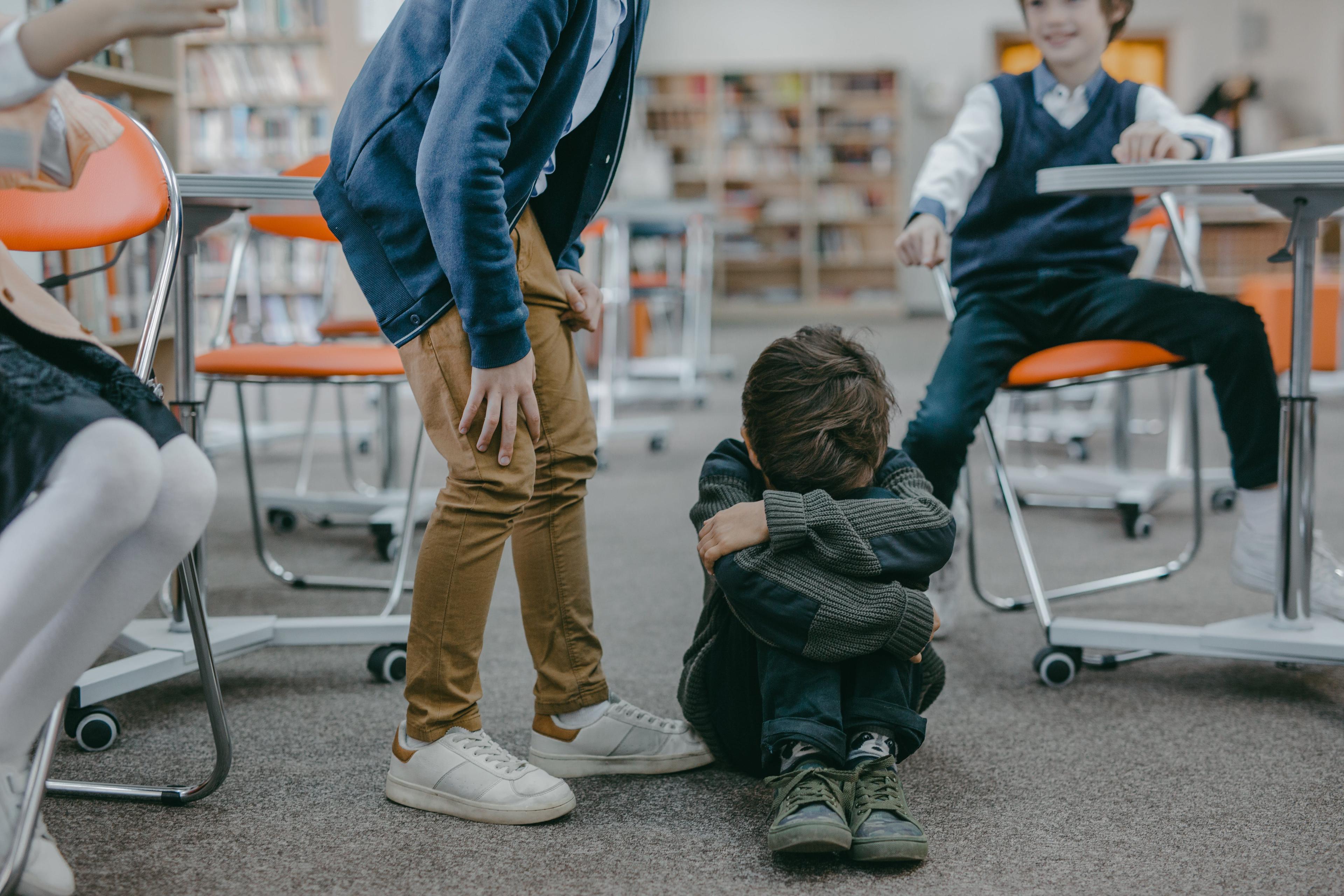


What can I do about my child being bullied?
2 February 2024
Note from the author: this is a personal view point – not everyone may agree with it wholly or partly. I hope you enjoy the read.
Kids are kids. What do we mean by that? Kids will always say and do things that others may consider to be unkind. It’s the reality of life, and it’s the same in adulthood too. By the time we get to adulthood, most of us will have learned to be kinder, but many don’t. Kids will call each other names, play fight, push each other’s boundaries, gang up, form pack groups, and exclude others. It’s tough for a parent to see this happening when your child is negatively affected, but it’s the nature of groups of children together.
Parents who educate their children around being kind and being inclusive are likely to have less issues, but you can’t control how other people bring up their children. The harsh reality is, there’s always going to be some unpleasant children, and children will naturally form friendships with certain groups of children.
What do I teach my kids?
The first thing, and most important thing as a parent that I’ve taught my kids is, be kind to others. Treat everyone how you would want to be treated yourself.
The second thing I teach my kids is: don’t worry if other children call you names, or push you around a bit. It’s quite normal and it’s very common. Boys love to rough and tumble, and love to wrestle, its very normal. This is not a bad thing; it is just what boys naturally want to do. And many say that its healthy for boys to play-fight. I personally think that a bit of argy-bargy isn’t necessarily bad but just normal, especially for boys. Girls can usually be more cliquey and bullying among girls can be just as bad. Girls tend to be less physical. Kids will naturally call each other names because parents call their children all kinds of names too. The problem is when it’s done maliciously and to cause hurt. This is not pleasant and should be addressed. However, the reality is, it happens all the time.
Include others
The third thing I teach my kids is not to exclude other children from hanging around with you. However, it is very normal for children to exclude others. Children will form packs, and packs will have a hierarchy, similar to the animal world. Some children will be excluded from some packs, and while that is harsh, children can be encouraged to find new friends. A good example is the book and film: Lord of the Flies. Different leaders of packs will have a different power dynamic – some being more rational and democratic, others being more authoritarian and using fear or violence to control.
Choose kind friends
The fourth thing I teach my kids is to stay away from other children who are clearly not kind or not good kids. As seen in the book Lord of the Flies, William Golding proposes that there is an inherent evil as part of human nature. It is symbolised by the beast, that the boys fear, which is ultimately revealed to be within themselves rather than an external force. We hear so many examples of children doing well, but end up in the wrong friendship circle and sampling drugs, or getting into crime when they are older. There are always going to be bad people in life, I prefer my kids to stay away from them.
Focus on their strengths
Fifth, find the thing your children are really good at. All kids are good at something. It could be chess, it could be reading, or sport, or music, or dancing. Find classes, groups or activities where they can join groups who share similar interests. There are so many groups and classes that kids can do, and we list them on www.hoop.co.uk/app. Engrossing children in play, activities, sport and other hobbies is a great way for them to learn how to socialise, have fun, and get on with like-minded children.
Parents have to take responsibility for how children are to other children. As Jordan Peterson, the famous psychologist says, “If a child has not been taught to behave properly by the age of four, it will forever be difficult for him or her to make friends. The research literature is quite clear on this. This matters, because peers are the primary source of socialization after the age of four.” The point is, parents should do their utmost to socialise children prior to age four. It is our parental responsibility to help our children integrate into communities and society. If we choose not to, then there is a risk that our child will be segregated from societal norms. That’s fine, if that’s something you want. Some people don’t want to fit in with societal norms, and their children will probably be the same. For me, I want to fit into a society where we share common rules and laws, and I did my best to get my kids playing with other kids as much as possible.
Speak to their school
Lastly, while resilience and hardiness are important factors that we have to try to encourage in our children, the school is also there to support and help. Schools have policies on bullying, and support networks, and teachers are experienced. There will always be some degree of bullying in a school, and most of it just needs us as parents to support kids with being resilient. However, speaking to teachers can help. They may not have noticed it specifically with your child, and may not be aware. Once aware, they may put in place some changes that support your child.
